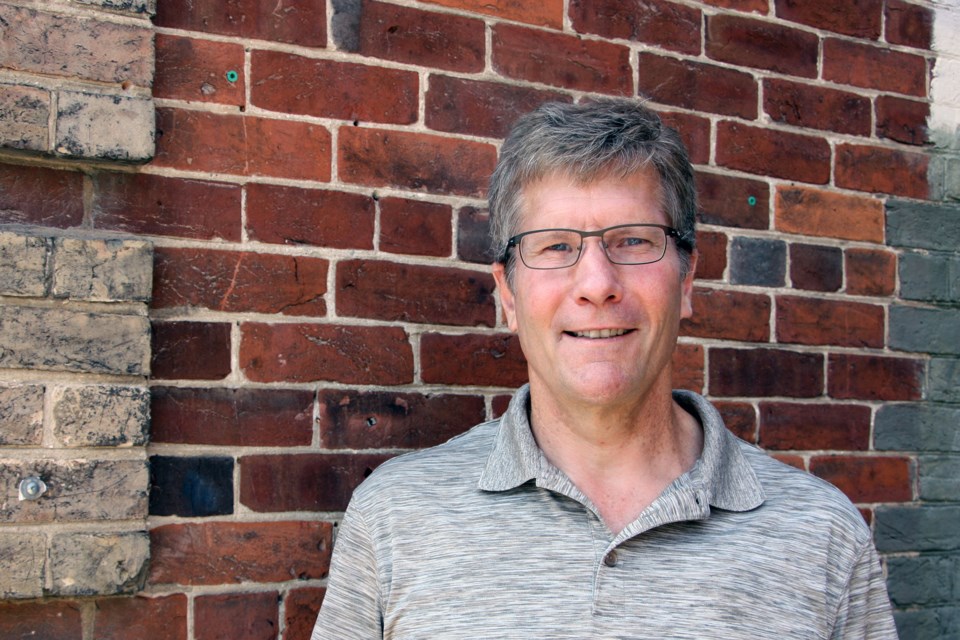With a great waterfront comes great responsibility.
That’s according to Mayor Brian Saunderson, who’s fresh off his first annual general meeting as a member of the Great Lakes and St. Lawrence Cities Initiative.
The organization, first formed in 2003, is a collection of mayors from waterfront towns and cities in Ontario, Quebec, and the US - each with a border on the Great Lakes or St. Lawrence Seaway. There are 131 US and Canadian mayors involved in the work to advocate for the protection and restoration of the Great Lakes and St. Lawrence River.
Saunderson is a member of the board of directors, a three-year term he inherited from his mayoral predecessor Sandra Cooper.
“Being part of the Initiative gets us involved in some very important discussions and exposes us to other ideas,” said Saunderson. “It’s great cross-pollination.”
Recently Saunderson introduced a motion he brought from the June 5-7 AGM to ban single-use plastics in municipally-owned facilities.
That ban, he said, would apply even to items sold in vending machines at the town arenas, provided the town can work out the change with the contractor who supplies the machines.
“We’re looking at setting an example for our community and the business district,” he said. “It’s in everyone’s interest to be as green as possible.”
In some cases, that might mean more work from the municipality and the county to help businesses separate the waste their generating into organics and recycling.
Currently, the county of Simcoe runs waste collection for Collingwood residents, commercial units are not included in the service. Though some do get curbside collection, others must find their own means for waste disposal, and that often doesn’t include organics and recycling options.
“We’ll have to come to grips with how we can accommodate our business groups,” said Saunderson.
Collingwood has a long history with the Great Lakes and St. Lawrence Cities Initiative. Former mayor Terry Geddes was one of the founding members, and served on the board of directors at that time. Cooper also served on the board during her terms as mayor.
Saunderson said it’s important for Collingwood – as a waterfront town – to continue its membership and work with the Initiative.
“Our community’s vitality and health are very tied to the waterfront,” said Saunderson. “We’ve moved from an industry use to a more recreational, tourist, and commercial use, but the waterfront and health of Georgian Bay remain very closely tied to our vitality as a community.”
Not only does Collingwood have a vested interest in a healthy waterfront, it has a responsibility to protect it.
“We take our drinking water from Georgian Bay, and we sent our treated wastewater back into the bay,” said Saunderson. “From a municipal government perspective there is a very high responsibility under the Clean Water Drinking Act and the Sourcewater Protection Act.”
Initiatives such as the membership-wide single use plastics ban, and the work to prevent the invasive species Asian Carp from getting into the largest group of freshwater lakes on earth help protect the Great Lakes.
Saunderson is also hoping Collingwood can lend some expertise to its fellow waterfront cities and towns as a leader in water-related technology, whether that’s in purification, flood mapping, or stormwater management.
Recently, council received a project update from Greenland, a Collingwood-based engineering firm currently running a pilot project in town using computers to track and calculate stormwater management through wi-fi connected sump pumps and rain collection systems.
Saunderson said there could be results from that pilot project to share with other members of the Great Lakes and St. Lawrence Cities Initiative for more widespread protection of open source water.
To read more about the Great Lakes and St. Lawrence Cities Initiative and the current initiatives including a proposed physical separation (like a dam) between the Mississippi River basin and the Great Lakes and St. Lawrence Seaway, click here.


